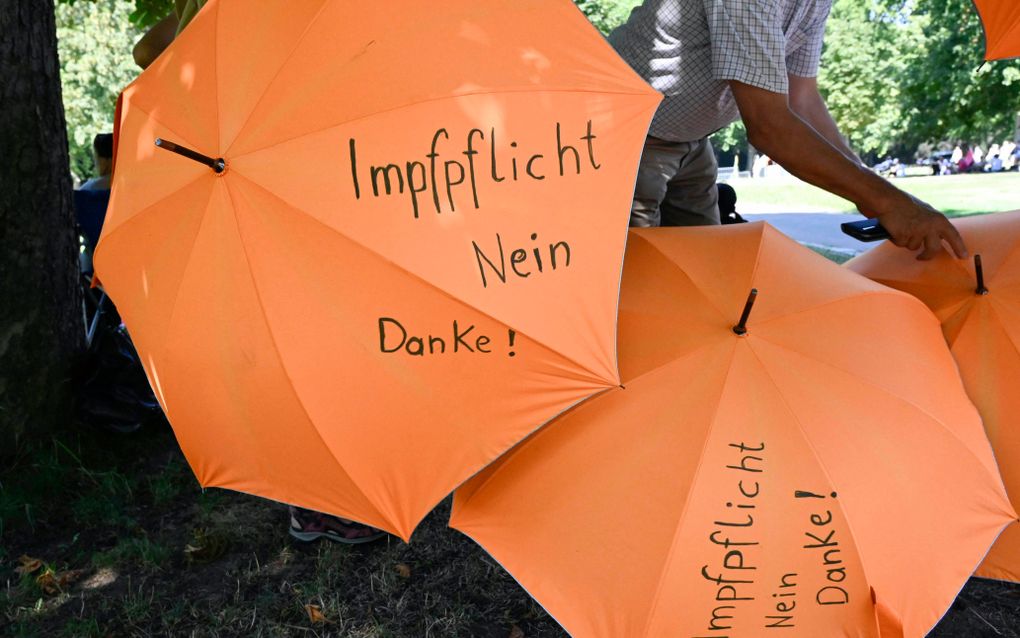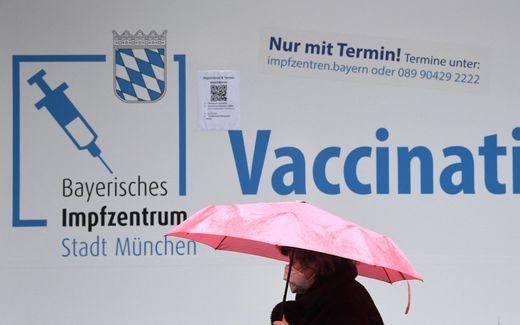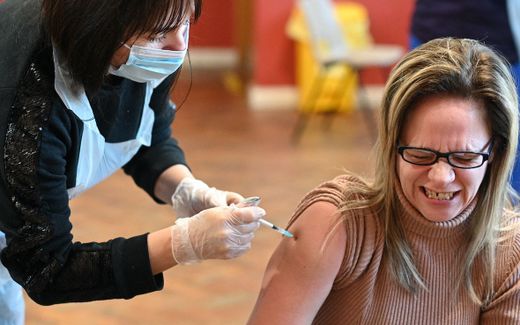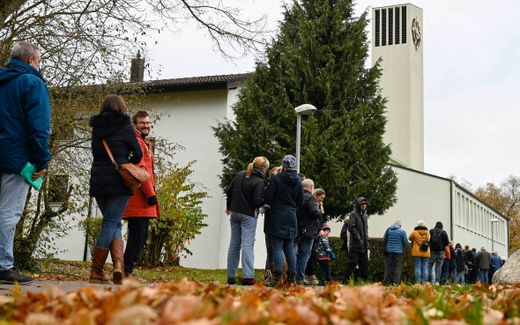German free churches are against compulsory vaccination

The smaller religious communities hesitate for compulsory vaccination. Photo AFP, Thomas Kienzle
Central Europe
The mandatory vaccination in Germany is not coming as quickly as the new coalition wishes, but the intention is there. Generally speaking, churches favour it. But evangelicals and pietists are against it.
The general religious communities in Germany, such as the prominent people’s churches, favour mandatory vaccination, as the magazine Pro reports. The Muslims, Jews, and the German Protestant Church (EKD) leadership are all in favour as well.
But the smaller communities are not. The evangelical news agency Idea asked leading free church representatives for an assessment. The result: most of them hesitate. Others point to the responsibility of politics.
Not very effective
The Evangelical Alliance in Germany published a declaration in which the organisation said that general vaccination is “not very effective”. According to the statement, it appears to be contributing to a further hardening of the fronts in society. Better is it to encourage people to be vaccinated voluntarily.
Spiritually, the Evangelical Alliance has been active for freedom and liberty since its foundation, the EAD claims. The statement refers to the position about slavery and the freedom of conscience. “We speak out clearly against making the vaccination question a question of commitment. A Christian is a person because of his relationship with Jesus Christ, not because of his vaccination status.”
The organisation warns against the “abuse of the vaccination debate by forces who fundamentally question the institutions of the rule of law.”
Means of last resort
The chairman of the pietistic Gnadauer Community Association, Steffen Kern, thinks that compulsory vaccination is “ethically legitimate” as a means of last resort. But we are not there yet. And there are legal, practical and social issues before that, Mr Kern told Idea.
The president of the Federation of Free Evangelical Congregations (FeG), Ansgar Hörsting, also sees a general vaccination requirement as critical. It would be “premature at the moment, even if I understand the arguments in favour of it”. Other measures would have to be taken to improve the vaccination rate. Different target groups should be addressed better.
For the general secretary of the Federation of Evangelical Free Churches (BEFG), Christoph Stiba, it is a “sign of lived responsibility and solidarity in the pandemic” to be vaccinated: A general vaccination requirement is a decision “politicians have to make, taking into account social, ethical, legal and very practical aspects.” He sticks to what he can do in his role as a church representative: “To be in conversation with people and try to convince with arguments, but also to listen so that the polarisation does not increase but decreases.”
Compulsory is rather difficult
The bishop of the Evangelical Methodist Church (UMC) in Germany, Harald Rückert, said that he personally considered the introduction of a general compulsory vaccination “rather difficult”: “The right to physical integrity and self-determination is a very high one good.” He strongly recommends vaccination but respects people who have made a conscious decision not to vaccinate.
The president of the Pentecostal Free Churches (Bund Freikirchlicher Pfingstgemeinden, BFP), Johannes Justus, warns that coercion will lead to even more controversy and hostility: “That is why I advocate further clarification, conviction and transparency. In my opinion, coercion is not the right way to go.”
Political decision
Previously, the council chairman of the Protestant Church in Germany (EKD), Annette Kurschus, had spoken out in favour of compulsory vaccination. But her predecessor, bishop Heinrich Bedford-Strohm, rejects it “at this point”. The Catholic Archbishop of Munich and Freising, Cardinal Reinhard Marx, made a cautious statement. A state vaccination requirement “can be an important step, but that is ultimately a political decision.”
The Bundestag wants to deal with the issue in an orientation debate at the end of January. Since only one week of meetings is scheduled in February because of the carnival, a decision on compulsory vaccination in the Bundestag could not be made before March 14th. The Federal Council would then have to approve the law.
According to a representative INSA survey in favour of “Bild am Sonntag”, a majority of the population are in favour of a general vaccination requirement: 61 per cent in favour, 32 per cent against.
Related Articles






